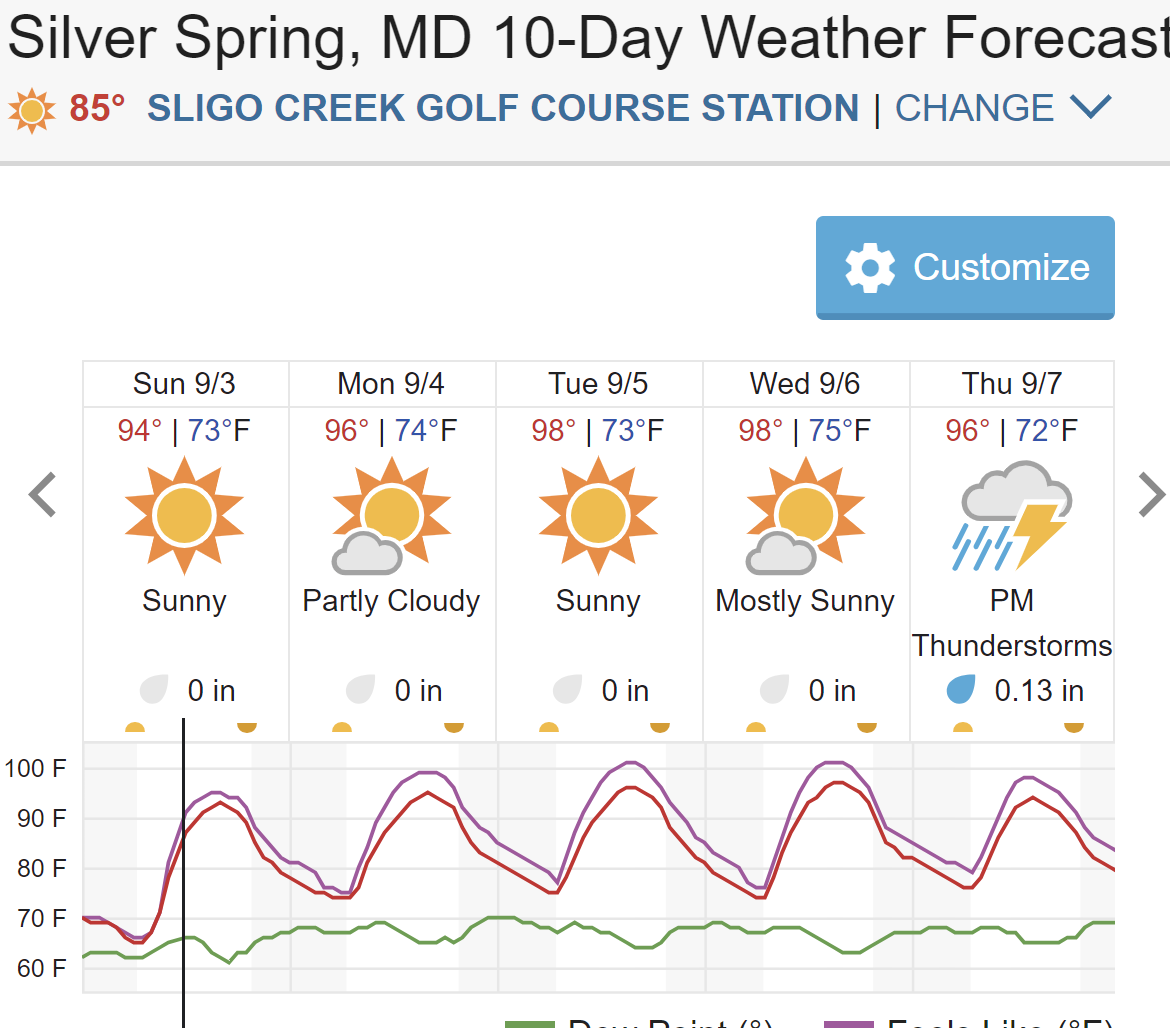Yes, climate change causes high temperatures
I checked the local weather outlook yesterday to find next week’s projections breaking September high records where I live in Maryland.
Not only will this area break its September record of 97° F, it’s set to do so two days in a row.
Twenty years ago, during another strong El Nino phase, this area’s max temperature averaged 85° F.
On the heels of the hottest July and August in NOAA’s 174-year records, September looks to be trending toward completing a grim triplet: the hottest summer on record.
One of the most noticeable and concerning manifestations of climate change is the increase in extreme temperatures.
The United States has experienced a significant rise in extreme heat events in recent decades, resulting in adverse impacts on human health, ecosystems, and the economy.
Because of the rise in disinformation regarding the connection between climate and extreme weather (including heat), I’m writing this article to provide an overview of the trends in rising extreme temperatures in the United States, the contributing factors, and the consequences of these changes.
Extreme heat events, often accompanied by heatwaves, have become more frequent and severe, posing significant challenges to public health, infrastructure, agriculture, and the environment.
Keep reading with a 7-day free trial
Subscribe to Mesoscale News with Rebekah Jones to keep reading this post and get 7 days of free access to the full post archives.




